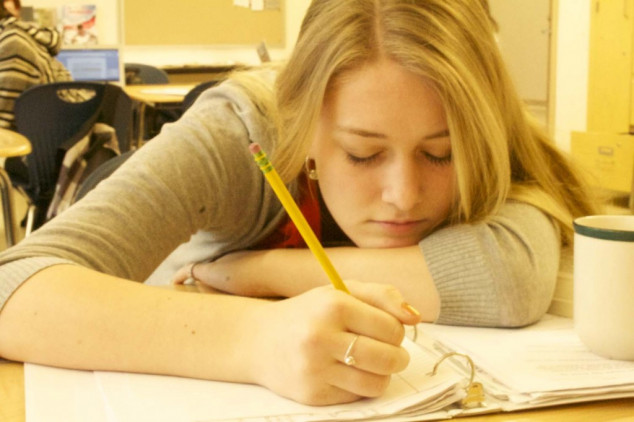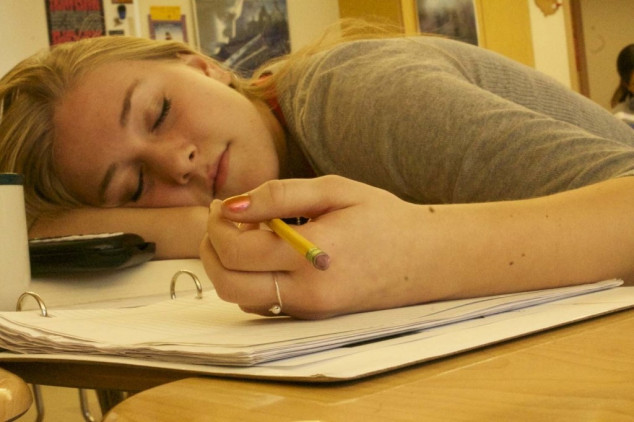9 Hours Nightly: High School Students Still Sleep Deprived
You know it when it happens. Your brain consumes way too much time wrestling listlessly with simple tasks. Your eyes threaten to drop shut with every lull in a conversation. You become irritable and you don’t enjoy life as much as you should. If you haven’t already guessed, it’s a condition extraordinarily common in young people – sleep deprivation.
In 2010, the Center for Disease Control and Prevention surveyed 12,000 U.S. high schoolers to detect patterns in the sleep habits of teenagers. The results turned out to be startling – less than 1% of the students surveyed reported getting nine or more hours of sleep per night, the amount recommended by the CDC.
The reasons for this lack of sleep are heavily debated. Articles in the New York Times and on kidshealth.org blamed social events and virtual conversations with friends late into the night as the cause. However, Amy Macechko, Health and Wellness Coordinator at Talawanda High School, identified a wider variety of sources for the problem.

“Students are involved in so many activities after school, including sports, work, and clubs, that it is tough to squeeze everything in at night and still make it to bed on time,” she said. “Students have to balance time with family, friends and homework in the evenings as well. I hear from students that time management is something that is truly a struggle at times.”
THS freshman Emily Froude reported getting enough sleep “most of the time”, but she still struggles occasionally with her sleep patterns. “I attribute [sleep problems] to homework, stress, and British television,” she said.
So why is getting enough sleep such a big deal? This was not a difficult question for Brooke Lee, sleep lab supervisor at McCullough-Hyde Hospital in Oxford, Ohio. “Sleep problems are linked to high blood pressure, diabetes, and obesity,” she said, adding that a large sleep debt can create problems with memory and concentration.
Lack of sleep can also have a devastating impact upon others. According to the National Highway Traffic Safety Administration, drowsiness and fatigue cause more than 100,000 traffic accidents each year – and adolescent drivers are at the wheel in over half of these accidents.
The facts may sound daunting, however, there are options for those seeking help. “[Sleep] is certainly a topic that comes up in group discussions, such as our District’s Health Coordinating Council. We recognize that sleep deprivation is a barrier to being productive in the classroom, and therefore, a barrier to learning,” said Macechko. She also mentioned that the Oxford area and Talawanda school district Coalition for a Healthy Community shares health tips with parents by email twice a month. “One of the tips specifically addressed sleep and how, according to research, by not getting enough sleep, students are more prone to engage in risky behaviors.”
Sleep deprivation is undisputedly an epidemic among teenagers, and makes serious impacts on individual and societal health. But it is not an unsolvable problem, with the help of students, educators, health professionals, parents and other caring adults.






